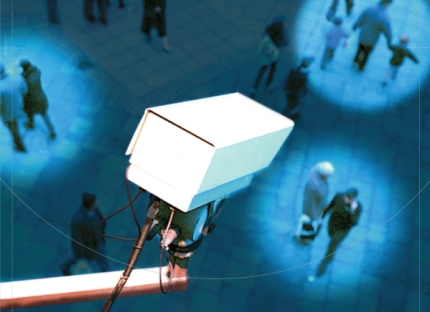Kamila Shamsie introduces this discussion by renouncing the title, explaining that instead of making us understand free speech in Pakistan, today we will only be confused further. However, she adds, confusion is a step towards understanding.
The first question is as relevant to the UK as it is to Pakistan: how far should surveillance go in the name of security? In Britain, we are told that the security service needs increased surveillance to protect us from terrorism, but is our fear being used as the driving force to take us to a Big Brother state? Author and journalist Mohammed Hanif argues that the Pakistani state patronises its civilians, telling them that they don’t know what’s good for them and need protecting.
The second topic also resonates with the audience. Razi Ahmed discusses the Lahore Literary Festival, which he founded and directs. He describes the scrutiny of the festival, with security personnel investigating which speakers have been invited and why. The panel also tell a story about a friend of theirs who organised a gathering, not unlike this one, and was shot fifteen minutes after it ended. ‘It is not even safe,’ says Ahmed, ‘to discuss ideas with a small group of like-minded people.’
They move on to the effect of technological advances on free speech in Pakistan. Hanif tells us that Pakistan now has ‘about a million and half’ TV channels – a drastic increase from ten years ago when there were only two. The most popular shows are political debates. This is surely a step in the right direction. However, when the subject turns to social media, it is a different story. The most well known tragedy is the murder of Qandeel Baloch by her own brother. Her posts were seen to be overly provocative, and when she posed with a well-known cleric, she was deemed to have gone too far. The panel laments that more should have been done to stop her. They do not seem to blame Baloch, or even her brother, but those who failed to warn her.
Finally, the dangers of free speech in journalism are examined. Hanif describes how fellow journalists urge each other not to speak out, for fear of their lives. These are not the journalists of films, where the story must be told no matter how high the risk; these are the journalists of reality, where the best story is the one where you survive. ‘Don’t say it today,’ says Hanif, ‘you might get shot, say it tomorrow, when the framework is different.’
